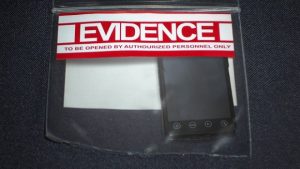 A recent message coming from the DHS (Department of Homeland Security) and the White House, stated that incoming citizens from certain countries may be subjected to having their cell phones searched for a wide range of information. It has been noted that this concept could also be applied the phone records of U.S. Citizens. This exact topic was the subject of a recent judgment issued by an Ontario Superior Court Judge John Sproat.
A recent message coming from the DHS (Department of Homeland Security) and the White House, stated that incoming citizens from certain countries may be subjected to having their cell phones searched for a wide range of information. It has been noted that this concept could also be applied the phone records of U.S. Citizens. This exact topic was the subject of a recent judgment issued by an Ontario Superior Court Judge John Sproat.
Charter of Rights and Freedoms
According to Justice Sproat, search warrants being used to force cell phone companies to release the records of thousands of their customers who are innocent of any wrong-doing is a direct violation of the Charter of Rights and Freedoms. This judgment was in answer to a case filed in the Peel Region. In this case, the police had been given a court order allowing them to access the names, phone numbers, banking information, and addresses of all cell phone users whose cell signals were connected to certain towers. This information was requested for a specific period of time during with a number of jewelry store heists that occurred in 2014.
The challenge to this in court was based on the idea that this broad-based court order affected the privacy of over 40,000 customers, the vast majority of whom were completely innocent. Justice Sproat voiced the decision that it was ” improper for the police to seek irrelevant personal information” during the course of their investigations. He went on to say ” have no hesitation in finding that the production orders were overly broad and that they infringed Section 8 (against unreasonable search and seizure) of the charter.”
New Guidelines in Canada
The end result included a number of new guidelines that could possibly soon find their way south of the Border here in the U.S. These guidelines include suggesting that police officers simply limit their requests to the minimum amount of information needed for the case in question. This might be limited to nothing more than the phone numbers that accessed the cell towers during this period of time. This way the cell service providers could create tailor-made reports rather than providing police with reams of useless raw data containing large amounts of private data.
In a statement made during a CBS News interview, Sukanya Pillay, executive director of the Canadian Civil Liberties Association, she said: ” They can’t be mass surveillance, needle in a haystack searches.” This situation not only affects hundreds of thousands of private citizens in Canada but also has the potential to affect the privacy of millions of U.S. cell phone users if the practice should move south and be taken up by law enforcement agencies across the nation.
While this was the first such case in Canada, it sets a precedent that may also be used to argue such a case in the United States where citizens’ rights to privacy are protected in a similar fashion. To be sure, law enforcement agencies do need access to this type of information, but in a carefully limited manner. At the same time, the rights of privacy are guaranteed under the 4th Amendment to the U.S. Constitution, this is sure to become an issue that must be settled by the courts in the U.S. before it becomes a major problem for both citizen and law enforcement officer.
